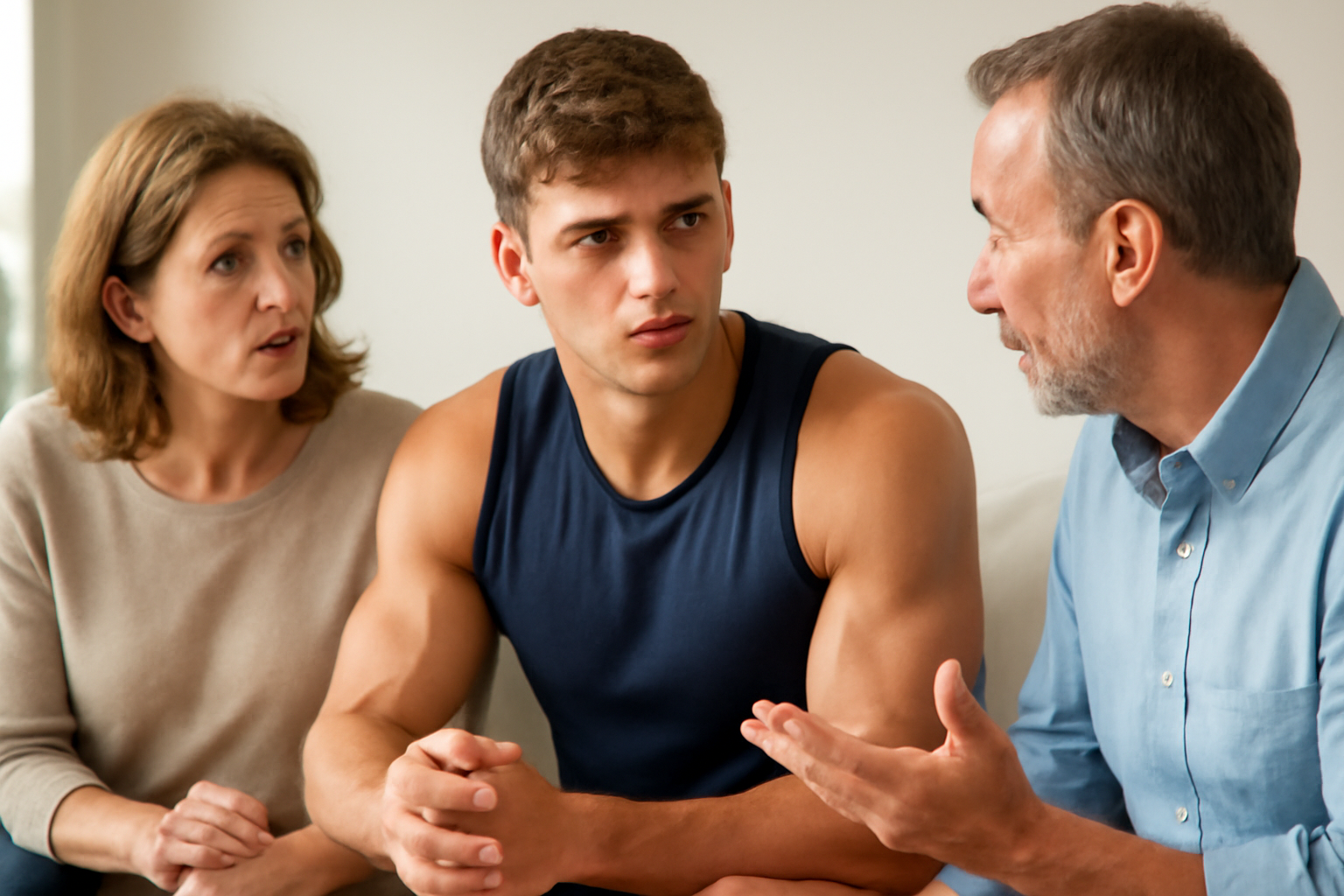
In recent times, there has been an increasing concern regarding a condition known as "bigorexia," clinically referred to as muscle dysmorphia, which is becoming particularly prevalent among young men. This disorder, characterized by an obsession with muscularity, often leads to compulsive behaviors surrounding exercise and diet. As parents, guardians, or mentors, understanding how to approach this topic with young people is crucial in fostering awareness and promoting healthy body image.
What is Bigorexia?
Bigorexia, or muscle dysmorphia, is a subtype of body dysmorphic disorder. Individuals with this condition perceive themselves as insufficiently muscular, regardless of their actual physical appearance. This distorted self-perception can lead to extreme measures, such as excessive weightlifting, strict dietary regimens, and in some cases, the use of anabolic steroids. The psychological impact can be profound, affecting self-esteem and overall mental health.
Recognizing the Signs
Recognizing the signs of bigorexia is the first step in addressing it. Common indicators include:
- Spending excessive amounts of time at the gym or engaging in physical training.
- Maintaining a diet that is overly restrictive, often avoiding any deviation from a specific meal plan.
- Frequent mirror checking or comparing one's body to others.
- Neglecting social activities, work, or school to prioritize workout routines.
- Using supplements or steroids to enhance muscle growth.
If you observe these behaviors in a young person, it’s important to approach the situation with sensitivity and understanding.
Starting the Conversation
When discussing bigorexia with young people, it’s vital to create an open and non-judgmental environment. Here are some tips on how to initiate and navigate this conversation:
Listen Actively
Begin by listening to their experiences and feelings. They may be more willing to share their struggles if they feel heard and understood. Ask open-ended questions to encourage them to express their thoughts.
Express Empathy and Support
Let them know that it’s okay to feel pressure about body image and that they are not alone. Reassure them of your support and willingness to help them find a healthy balance.
Provide Information
Educate them about bigorexia, explaining that it is a recognized condition. Discuss the risks associated with it, such as physical injuries from over-exercising and the mental toll it can take.
Promoting Healthy Habits
Encourage young people to adopt a balanced approach to fitness and health. Here are some ways to promote a positive body image:
- Emphasize the importance of overall health, rather than focusing solely on appearance.
- Encourage participation in a variety of physical activities that are enjoyable and not solely focused on muscle gain.
- Promote nutrition that supports health and well-being, rather than an obsession with calorie counting or macronutrient ratios.
- Highlight the value of rest and recovery as part of any fitness regimen.
Seeking Professional Help
If bigorexia is significantly impacting a young person’s life, professional intervention might be necessary. Mental health professionals, such as counselors or therapists, can provide guidance and support tailored to their needs. In some cases, a medical professional's involvement may be required to address both the psychological and physical aspects of the disorder.
Opening up a dialogue about bigorexia not only helps in recognizing and addressing the condition but also fosters a broader understanding of body image issues. By guiding young people with empathy and information, we can help them build a healthier relationship with their bodies and lives.
Related Posts
Finding a Community in Unexpected Places: A Personal Journey Through Texas
On my latest business trip down in Texas, it felt like everything that could go wrong did. It all started with my flight from Los Angeles, which got hit with major delays. I ended up missing my connecting flight in Dallas, and it took a full day before I finally made it all weary and worn out in McAllen. I tried chalking it up as one those typical travel mishaps, but I couldn't help but wonder if [...]
Jonathan Bailey's 'Chic Glasses' Steal the Spotlight in Jurassic World Rebirth
Jonathan Bailey's fashion choice dazzles in Jurassic World Rebirth Fans can't wait any longer—the latest installment in our beloved Jurassic franchise, *Jurassic World Rebirth*, hits theaters soon. And guess what? It's not just about dinosaurs this time. Jonathan Bailey, whom we adore from *Bridgerton*, steps up as Dr. Henry Loomis, a charismatic paleontologist. But what's stealing his thunder? [...]
Martha Graham Cracker: A Night of Electrifying Drag Performance in Atlantic City
Experience a night like no other: Martha Graham Cracker's rock n' roll drag cabaret Get ready, because Martha Graham Cracker's about set Atlantic City's Anchor Rock Club on fire with her electrifying drag cabaret. With a voice that commands attention and a stage presence that's both vibrant and mesmerizing, she blends rock and roll with drag like nobody else. If you're itching a night jam-packed [...]